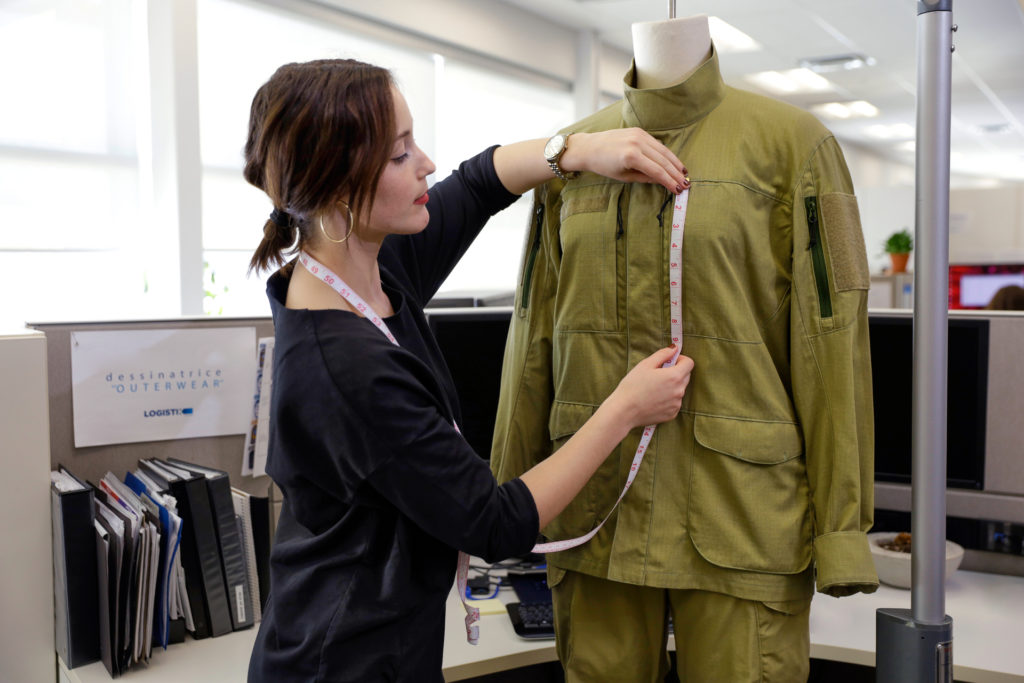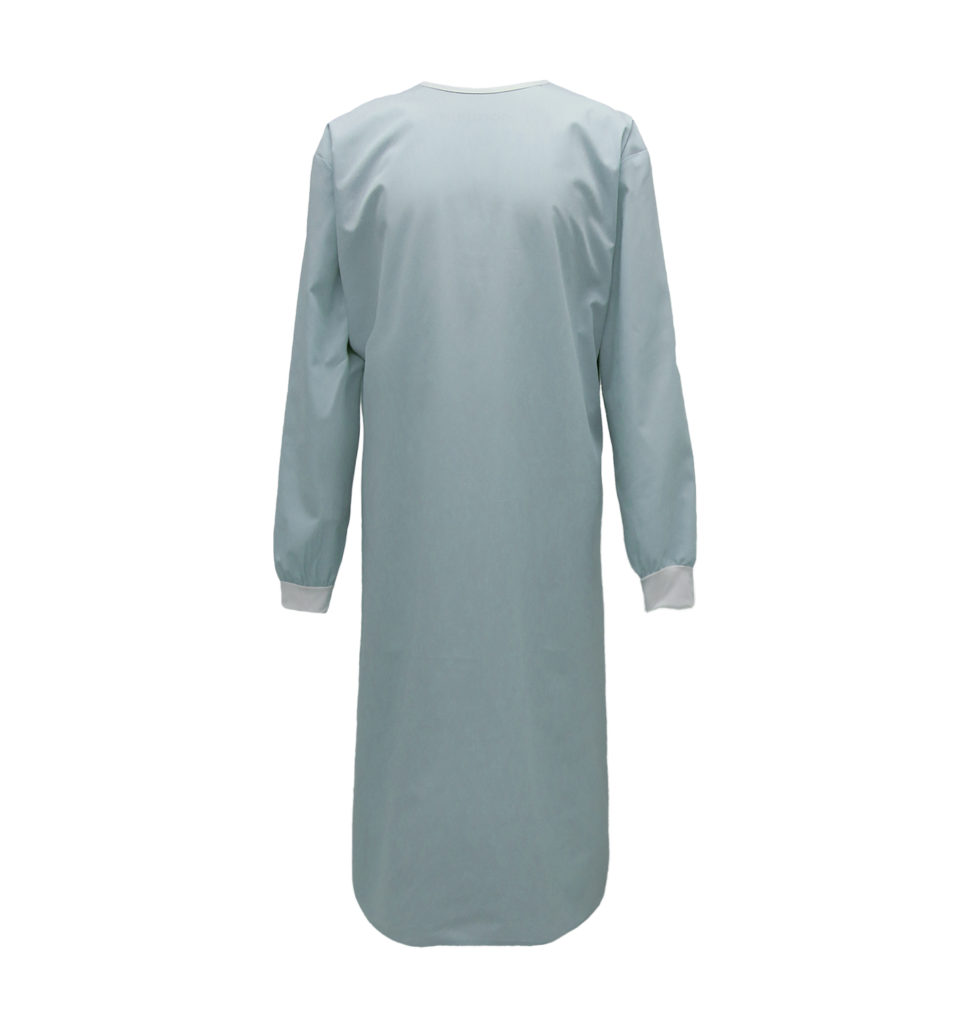Estimated reading time 5 minutes, 41 seconds.
When you already manufacture medical scrubs for the Canadian Army, it’s not a huge leap to washable gowns for Canadian frontline healthcare workers. Still, Logistik Unicorp had to rally its suppliers and invest in new equipment to start producing key items of personal protective equipment now in high demand globally.

“We are a Canadian company, we’re proud to be Canadian, and we wanted to help,” said Karine Bibeau, vice-president of Sales. “Given that we have the designers, the researchers, it was a small step to do washable isolation gowns using our expertise.”
The Saint-Jean-sur-Richelieu, Que., company is a familiar name to Royal Canadian Air Force (RCAF) members. Since 1996, it has been delivering the Canadian Armed Forces’ Distinctive Environmental Uniform (DEU) under a managed clothing contract through which personnel use a points system to order online everything from shirts and pants to parkas and windbreakers.
The company also produces some of the flight suits for the air cadets, though not the ubiquitous combat flight suits worn by aircrews at Wings and Squadrons across the country.
“We do everything from research and development of raw materials, to design … and distribution,” she said, producing and shipping over 4.7 million items worldwide per year.
While Logistik Unicorp has experience with medical items – it supplies uniforms to paramedics and clothing to the British Columbia Ministry of Health and to various private sector customers – it had not attempted protective equipment with the standards of medical-grade washable isolation gowns and face masks. But as executives watched the nightly news and saw the growing demand, especially in hard hit Quebec where confirmed COVID-19 cases now exceed 14,000, it was impossible not to help, said Bibeau.
The company first had to obtain the necessary certifications of its fabrics and seam-sealing to meet AAMI PB70 Level 1, 2 and 3 industry standards, a step that required sending its seams to an accredited laboratory. To retool its manufacturing facility, Logistik Unicorp then bought machines able to seam-seal garments to Level 3 standards. In anticipation of greater demand for disposable gowns, it even acquired new ultrasonic equipment to meet the seam requirements, though it has yet to start production of the product.

“We didn’t wait for an order,” she said. “We really did all the steps beforehand.”
Over the Easter long-weekend, however, the company began production and shipment of its first Level 1 and Level 3 washable isolation gowns for the Quebec Ministry of Health and Social Services. It is ramping up to about 200,000 gowns a week, but has the capacity to increase that if the need is there.
In addition to isolation gowns, the company is also developing a washable medical-grade face mask. It has tested several prototypes and is finalizing fabrics and design elements, with the intent of evaluation production capacity in the next few days, said Bibeau. “We want to make sure we meet [the highest] standard, so we are taking our time like we did with the gowns.”
Unlike some manufacturers that have had to look to foreign suppliers for material, Logistik Unicorp has “a very extensive Canadian supply chain,” noted Bibeau, including for its raw materials. “Eighty per cent of what we sell is made in Canada … We do have four manufacturers of washable fabrics, but we can also supplement with our suppliers overseas.”
One of the enduring lessons of the pandemic, she added, will be ensuring the strength of the company’s Canadian supply chain.
Sales are still preliminary, but discussions are ongoing with federal and various provincial governments to identify needs, she said. In particular, interest has been high from current customers such as paramedic organizations looking for enhanced and more durable protective equipment.
The start of a new production line couldn’t have come at a better time. Like many small- and medium-sized business in the defence, security and aerospace sectors, Logistik Unicorp was initially forced to lay off employees as it adjusted to reduced demand for product. With the ramp up of medical gown production, all of those workers have asked to return to work in the past few days, said Bibeau.
“With our contractors, it’s the same thing. A lot of them had to layoff [people]. With this new requirement, they will be able to call back employees.”
Even if coronavirus cases in Canada peak in the next weeks, she anticipates healthcare workers and other first responders will continue to need gowns and masks for some time.
“A lot of people are distributing disposable gowns,” she noted. “We’re doing washables, so we’re doing items that will have a longer lifecycle.”









Hello – I was wondering what your price would be for 60 of the reusable isolation gowns. Thanks!
Hello Dona. Please contact Logistik Unicorp directly for information. Thanks!